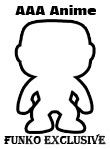Anime News
|
Interview With Alex Ross On 'Project Superpowers' & 'Avengers/Invaders' Date: 4/14/2008 |
|
Alex Ross has one of the most distinctive styles in comics -- a sharp, dynamic manner of painting that manages to be both hard-edged and fluid. His art is informed by a deep knowledge of the history of comics as well as by his sterling technique. Ross is deeply involved in his current projects Project Superpowers for Dynamite (see "Project Superpowers") and Avengers/Invaders for Marvel (see "Time Travel to Bring Cap Back"), both of which reflect his interest in retro properties. But he recently took the time to talk to ICv2 about those new projects, his career, and his inspirations. In Project Superpowers you're basically working with a bunch of golden age superheroes. What attracted you to them? There's a sense of purity to the archetypes in the sense that they are some of the first concepts being thrown out in comic books before it all whittled down to the universes we identify through DC and Marvel -- so some of the earliest concepts that would lead to characters like Spider-Man, or characters that were of equal status to the DC characters in the forties, were ones that were available for our use in this revival. What is it about the golden age characters that you find so fascinating? I am a very meat and potatoes sort of superhero fan, so I like to go back -- I'm drawn to greater simplicity, probably. I like to bring in my own level of what I would view as sophistication to try an pump these things up to make them look a little more exciting for a modern audience, but I'm probably very removed from a lot of more avant garde current taste in terms of some modern designs of costumes that don't match my first instinct or my discipline. I come from this simpler, less sophisticated background. What do you bring to them--how do your versions of these heroes differ from the originals? Well it's not meant to differ in such a grandiose way that it seems like you are getting something different than what the forties delivered. If I take a design like the Black Terror and I move a couple of elements around, but I keep the things that I view as being most essential, then I'm trying to make an audience today think that this character looks as good as any that is on the stands currently. I can also bring sort of an attitude to some characters that pushes further what they were delivering back then. A lot of these guys were very aggressive for the time that they were created in. They were initially all fighting wars, so there must be some of that respectful look of power. None of these guys should be seen as lighthearted or whimsical in my interpretation. Do you like the 1940s cover artists like Alex Schomburg? Well frankly that's probably the part that's influenced me the most because I have the Gerber books -- the oversize books that reprinted a majority of all the comic covers from the golden age and silver age comics that I use as my main reference source to identify what some of these lost characters are, so I am always looking back at the covers chiefly before I've gotten more of the information from the stories. How do you craft these characters for a modern audience? Basically everybody's trying to sell this modern audience everything they can, and Project Superpowers will be a test of whether or not we've got a reason for you to buy yet another superhero universe. I think that will be judged by whether or not the immediacy of both the story and the sort of salesmanship involved is going to get people excited. If we immediately tried to turn it into something that had countless spin-offs, we might be in more difficulty. As it is we are planning at least a couple of spin-off series to come out from our initial launch, but most of that is just for a spotlight focus on characters like the golden age Daredevil and the Black Terror so we can tell deeper stories about their characters before we follow through with yet another mini-series or maxi-series for the Superpowers brand. We're going to try to keep it going by concentrating mostly on these long issue runs, which are themselves kind of finite chapters of a large story. If we can create something that's worthwhile in that time that has a dramatic build-up and a dramatic payoff hopefully we will keep people with us. What do you personally contribute to the Project Superpowers comics? As it was when we worked on Earth X, and subsequent sequels to that, and the Justice series, a lot of it comes down to my looking at the material first and coming up with a first blush inspiration of how to interpret the character--and a lot of the concepts for the story come out of that. So the key points, such as, "here's the villain that will dominate" or "the multiple villains that will dominate in some of the side stories" -- those sorts of things will come out of my study of the material. And then I cobble together a large amount of that, both visual and story content, to present to my collaborator Jim Krueger, and to Dynamite. So everybody weighs in with an opinion, but mostly it's me fighting for everything I came up with in the first place and telling everybody this has to make its way in here -- "whatever you write around this, you still have to fit this in." It's very collaborative from that point on -- there's a lot of growth from there. I'm usually the first person looking at it, though in the case of Project Superpowers the creation of the entire project came from the publisher (Nick Barruci of Dynamite) who wanted us to go after this material, and wanted us to develop this as its own world. He had a few key concepts to that point, and so everything I've built up from there has been my picking up the baton from him, and then putting in my time and effort, especially with the sketches and the concepts -- and again then I pass the baton to Jim Krueger and it keeps getting passed round and round so you never know who started what. So you are creating this new universe and you have a few spin-off stories planned already? Yeah, they wanted to launch with some four-issue mini-series about some of the key characters so that we begin to bring greater attention to these guys as their own icons outside the big collective of the main series. We are going to try to keep it manageable so that it doesn't appear like we have dumped the world on top of the consumer. Consumers are generally being asked to buy one main book that will tell them the story of this universe; so even if there's a mini-series, it will be in between chapters of the main series. The characters in Project Superpowers were in the public domain -- are you (or Dynamite) attempting to copyright your versions of characters such as the Black Terror or Death Defying Devil? You can copyright your revision of something, I guess, but you can also file for trademarks on things that have been out in the public domain, and you can register your claim on that name, so it just involves pursuing that and paying the fees, and that has been done. "Death Defying Devil" is a name that we concocted. Obviously we couldn't file for Daredevil, but we could file for the Green Lama, because there wasn't an active trademark on the character, just like there wasn't on the Black Terror, so those are characters that we do have trademarks on. Let's talk about Avengers/Invaders -- now this series is in the Marvel continuity isn't it? Yeah, the real bizarreness of it is -- will it matter in the large scheme of things? It's not like we have been given any kind of broad brush to repaint the Avengers' world and do anything we want with it. We have more latitude to make an effect upon the characterization of the Invaders, and who's to say what will follow after this. But it's great to get to play with the top toys of the company, particularly the current Captain America, and the Avengers series, both New and Mighty Avengers -- especially with that being the center of Marvel's big crossover series of the moment (Secret Invasion). Since we are just to the side of that, it's a very odd thing to be playing with the same icons, because we have no involvement with who becomes a skrull. It's not even supposed to be part of our story, so if we come up with anything interesting or unique, it will be kind of voted upon by the other creators, who have more control over the Marvel universe than we do. It's still got to be very interesting, especially with what's been happening with Captain America, to have the Invaders come back? We have a power for greater poignancy in our story, I think, by pointing out that shock of seeing somebody you knew died recently come back, but not even know who you are yet, because they have never met you at this point in their lives. That we will be able to play with to a great extent, but there are also a lot of interesting twists that come with the various members of the Invaders in how their lives fit in with the world of almost 70 years later -- seeing who's dead and how does that affect them, how does information about the modern world affect this group, and what do they take back with them. Certainly the Invaders' political attitudes forged during World War II could provide some contrasts with those of the Avengers? Yeah, there is some of that, but you know, one of the things is that if we remember that if these guys were created for war (and that's what they just came out of, World War II), their position on what they were engaged in is far more ferocious and "life and death" than the assaultive culture of modern day would be to their senses. They're already coming from a very dark place, so they would probably be less caught up in the trappings of what new fashion dictates there might be in the world of today. These are guys who are battle-hardened and ready to kill. You've done some outside projects such as the Oscar poster; are comics still your first love? There is no field I could work in as an illustrator or designer that would garner me more attention, more individual creative focus than what is offered within comics. Yeah, it is my first love, and I am happiest working within this field. I would rather this field continue to grow and become bigger and I want to be part of making that happen if it's possible. I'd rather be making comics than working in any other media, because this is what I am trained for. I'm not a director or a film designer, and anything that would come along in that field (film) would be a diversion. Tell us about your training. I went to an art school here in Chicago that taught me basic illustration for the kind of things I do. I went into storyboarding first (commercial storyboards was my first vocation) and I slowly worked up enough samples and took advantage of some of the first short stories or mini-series opportunities I had within comics to build to a series that would finally be a full time gig for me in this business, and luckily I have not had to look back. It is terrifying to think sometimes of the number of people who have to leave the business to go and find survival work and I would rather never have to leave. I would prefer to stay within comics, but it's not always your choice. |
| Source: ICv2 |





















